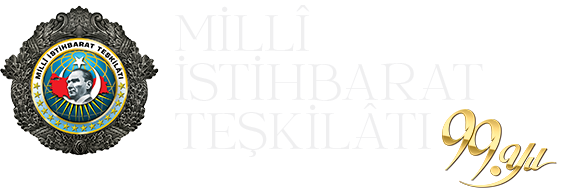National Intelligence Academy
The National Intelligence Academy (NIA) was founded on February 9, 2023, and began its activities on January 6, 2024.
Its objective is to advance the field of intelligence as a science in Türkiye by conducting postgraduate education and scientific research in the areas of intelligence, security, and strategy. The NIA aims to strengthen Türkiye’s position in the field of intelligence and security by contributing to the conceptualization of Türkiye’s experience in this area.
The master’s and doctoral programmes within the institutes are open to anyone who has graduated from relevant undergraduate programmes at universities with four years of education and meets the academy’s requirements. Students enrolled in these programmes will be able to study intelligence, security, strategy, regional studies, cyber security, cryptology, satellite space systems, artificial intelligence, data analytics, and related fields in an interdisciplinary scope.
One of the fundamental activities of the NIA is also to develop and conduct scientific research and R&D projects. It aims to conduct research and produce projects on intelligence and security issues, taking into account Türkiye’s strategic priorities and objectives. Additionally, it organizes national and international workshops, seminars, conferences, congresses, and other events to provide a common platform for academics and practitioners working in these fields.
The NIA aims to generate scientific knowledge in the field of intelligence and security through its educational and research activities. It aims to transfer the produced knowledge to the international literature and create a qualified and globally integrated intelligence community in Türkiye. The NIA is designed to serve as an interdisciplinary research hub for academics, students, experts, and practitioners working in the fields of intelligence, security, strategy, and regional studies. Its aim is to contribute to the national and international debates in these areas.
Its objective is to advance the field of intelligence as a science in Türkiye by conducting postgraduate education and scientific research in the areas of intelligence, security, and strategy. The NIA aims to strengthen Türkiye’s position in the field of intelligence and security by contributing to the conceptualization of Türkiye’s experience in this area.
The master’s and doctoral programmes within the institutes are open to anyone who has graduated from relevant undergraduate programmes at universities with four years of education and meets the academy’s requirements. Students enrolled in these programmes will be able to study intelligence, security, strategy, regional studies, cyber security, cryptology, satellite space systems, artificial intelligence, data analytics, and related fields in an interdisciplinary scope.
One of the fundamental activities of the NIA is also to develop and conduct scientific research and R&D projects. It aims to conduct research and produce projects on intelligence and security issues, taking into account Türkiye’s strategic priorities and objectives. Additionally, it organizes national and international workshops, seminars, conferences, congresses, and other events to provide a common platform for academics and practitioners working in these fields.
The NIA aims to generate scientific knowledge in the field of intelligence and security through its educational and research activities. It aims to transfer the produced knowledge to the international literature and create a qualified and globally integrated intelligence community in Türkiye. The NIA is designed to serve as an interdisciplinary research hub for academics, students, experts, and practitioners working in the fields of intelligence, security, strategy, and regional studies. Its aim is to contribute to the national and international debates in these areas.
MISSION
- To contribute to the development of Türkiye's strategic vision through scientific research in the fields of Security Studies, Intelligence Studies, and Regional Studies.
- To encourage analytical thinking and original research in intelligence and security studies.
- To develop theoretical and methodological approaches in regional studies and to promote field research.
- To support the training of individuals who will contribute to the formation Türkiye’s strategic vision.
- To conceptualize Türkiye's experience in the field of intelligence and security and to contribute to the international literature.
VISION
- To establish a competent intelligence community in Türkiye that is receptive to global engagement in the current competitive landscape of the multipolar world.- To contribute to the shaping of intelligence studies in Türkiye in line with the unique needs and priorities of our country.
- To develop a strategic understanding that will guide changes and transformations while keeping up with the latest developments in Türkiye and the world.

Prof. Dr. Talha KÖSE (Ph.D.)
Head of the Academy
Graduated from Boğaziçi University, Department of Political Science and International Relations (2000).
He obtained a Master's degree in Conflict Analysis and Resolution from Sabancı University (2002).
He received his PhD from the Institute for Conflict Analysis and Resolution at George Mason University in 2010.
He gave guest lectures at George Mason University (USA), Maastricht University (Netherlands), and Marmara University (Türkiye).
He served as the head of the Department of Political Science and International Relations at Istanbul Şehir University.
He worked as the Director of the Society Research Desk and Director of the Brussels Desk at the SETA think tank.
He also played a role in establishing Ibn Haldun University and chaired the Department of Political Science and International Relations.
He worked at Istanbul University, Faculty of Economics, Department of Political Science, and International Relations.
His research interests include international relations, conflict resolution, peacebuilding, Turkish politics, ethnic and sectarian identities, and radicalization. He has numerous scientific publications in Turkish, English, and Arabic. Köse has worked as an executive and researcher on national and international academic research projects.
Featured Publications
“Nasıl Bir Ortaklık? Türkiye-AB İlişkilerini Yeniden İşler Kılmak” (What Type of a Partnership? Re-energizing Turkish-EU Relations) , SETA Yayınları, 2023.
“Is a New Opening Possible in Türkiye-EU Relations?” , Insight Turkey, 25:2, (2023).
“Re-Negotiating Alevi Identity: Values, Emotions and Contending Visions on the Future”, SETA Yayınları, 2023.
“A Comparative Analysis of Soft Power in the MENA Region”, Foreign Policy Analysis, 12:3, (2016).
“Teröre Karşı Toplumsal Hareket: Diyarbakır Anneleri” (The Mothers of Diyarbakır: A Movement of Counter-Terrorism), SETA Yayınları, 2022.
“Countering Violent Extremism in Libya: A Peacebuilding Perspective”, SETA Yayınları, 2020.
“Türkiye’de Üniversiteler ve Radikalleşme” (Universities and Radicalization in Türkiye), SETA Yayınları, 2019.
“A Sea Change in the MENA Region: External Interventions in Libya” , Insight Turkey, 22:4, (2020).
“Armenia and Turkey: An Overview of Relations and Prospects for Normalization”, Hrant Dink Vakfı Yayınları, 2019.
“Rise and Fall of the AK Party’s Kurdish Peace Initiatives”, Insight Turkey, 19:2, (2017).
“Emigration and the diffusion of political Salafism”, Party Politics, 23:6, (2016).
"Assessments of Turkish Foreign Policy in the Middle East During the Arab Uprisings", Turkish Studies, 16:2, (2015).
“Out-group trust and conflict understandings: The perspective of Turks and Kurds in Turkey”, International Journal of Intercultural Relations, Vol.40, (2014).
"Çözüm Sürecinin Yükseliş ve Düşüşü", Türkiye Ortadoğu Çalışmaları Dergisi, 4:1, (The Rise and the Fall of Türkiye’s Kurdish Peace Process) (2017).
“Türkiye’nin Arap Baharı Sonrası Yumuşak Gücünün Etkisi ve Boyutları” (The Dimensions and the Impact of Türkiye’s Soft Power After the Arab Spring), Avrasya Türk Kültürü Stratejik Araştırmalar Vakfı, 2014.
“Between Nationalism, Modernism and Secularism: The Ambivalent Place of Alevi Identities” , Middle Eastern Studies, 49:4, (2013).
“Islamic Mediation of Ulema in Turkey” , Negotiation and Conflict Management Research, 5:2, (2012).
“İran Nükleer Programı ve Ortadoğu Siyaseti: Güç Dengeleri ve Diplomasinin İmkanları” (Iran Nuclear Program and the Middle East Politics: Balance of Powers and the Potential of Diplomacy), SETA Yayınları, 2008.
"Türkiye’nin Ortadoğu’da Zorlayıcı Olmayan Dış Politika Araçları", Ortadoğu Analiz, 2014.
“Identity Dynamics of the June and November 2015 Elections of Turkey: Kurds, Alevis and Conservative Nationalists” , Insight Turkey, 17:4, 2015).
“The AKP and the Alevi Opening: Understanding the Dynamics of the Rapprochement”, Insight Turkey, 12:2, (2010).

